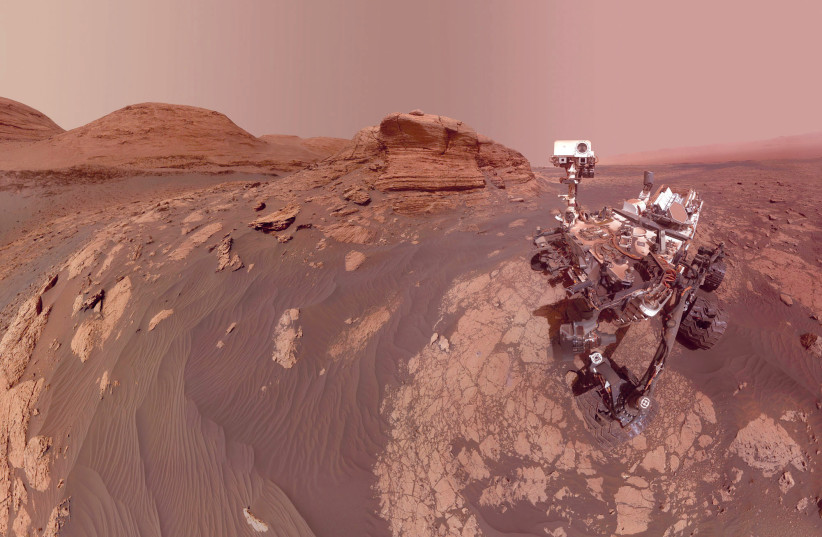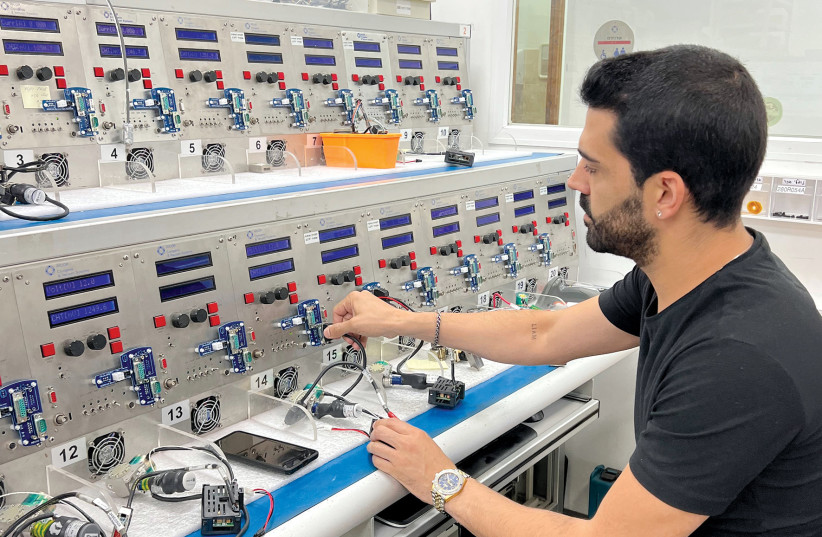How did one Israeli piece of technology end up on Mars? It may come as a surprise, but the coolant device on NASA’s Mars Curiosity rover originated from a kibbutz in northeastern Israel.
Ricor Cryogenic Systems, located in the northern kibbutz of Ein Harod, constructs sophisticated cooling devices for thermal imaging to help airplanes detect objects, and systems that help spacecraft survive in space’s extreme temperatures. In 2012, the privately held company landed the very first piece of Israeli technology on the surface of Mars, as part of a joint collaboration with NASA’s Jet Propulsion Laboratory (JPL), which constructed the Curiosity rover.
One of Ricor’s cryogenic cooling systems was integrated into the Martian rover’s hardware, allowing its camera to survive the extremely cold conditions by assisting the system in reducing the air pressure in its chambers.
Founded in 1967 following the Six-Day War, Ricor is an Israeli company that has withstood the test of time, helping propel the young state’s fledgling aerospace industry into the booming bastion it is today. In 1994, it started designing space technologies, and collaborated with NASA and the Ballistic Missile Defense Organization on the Clementine space mission to the Moon, which gave scientists the first glimpse of the lunar surface. This mission found evidence of ice near the Moon’s south pole. Since then, Ricor has collaborated with the Israel Space Agency and NASA, helping design sophisticated technology for deep-space missions.
“In 2008, our marketing team approached me and said that JPL was looking for a solution involving cooling devices,” said veteran engineer and current VP of marketing Victor (Vicky) Segal. “In the very early stages, we designed a special interface for their system by taking an existing model we had, making some changes that could be suitable for a space environment by adjusting certain materials so that the equipment would not become contaminated or malfunction in space.”

Ricor manufactures roughly 1,000 such coolers per month, producing several different models that differ in size, cooling capacity and weight. To ensure that the devices are properly equipped for space programs, the company screens a few versions out of several hundred, only choosing to send those with the highest performance capabilities to space.
At the kibbutz, a team tests them in its laboratory, perfecting the systems’ operational performance, ensuring that the chances of the machinery malfunctioning in space are nearly obsolete.
"Ricor is also based on a kibbutz. It’s not a standard company. When you think of Israeli hi-tech, you think of Tel Aviv, but building such sophisticated technology on a kibbutz – which is quintessentially Israeli – is really quite special. The fact that our technology was designed on a kibbutz, and landed on Mars is definitely not something you see every day."
Victor (Vicky) Segal
Ricor: Making history for Israel and space exploration
When the rover landed on the Red Planet’s surface in 2012, it wasn’t just Ricor that made history. “There was a sense of national pride that we, as an Israeli company, put some small part of Israel on Mars,” said Segal. “I remember there was a lot of excitement. Ricor is also based on a kibbutz. It’s not a standard company. When you think of Israeli hi-tech, you think of Tel Aviv, but building such sophisticated technology on a kibbutz – which is quintessentially Israeli – is really quite special. The fact that our technology was designed on a kibbutz, and landed on Mars is definitely not something you see every day.”
Curiosity has since “retired” from service but remains operational, and the cooler, to this day, is still running smoothly.
“Our cooler onboard the rover contains an instrument that conducts terrain analysis,” Segal said. “The rover drills a small sample of soil, makes an X-ray sample, and the cooler is used to cool down the X-ray detector. Our cooler has been operational for nearly 1,000 hours on Mars.”
The Israeli company's next project: A cooler to head to Jupiter's moon for NASA's Europa Clipper mission
The company’s next big project is another collaboration with NASA and JPL, involving the construction of another cooler for a mission to one of Jupiter’s moons, Europa. The Europa Clipper mission, scheduled to launch within the next two to three years, plans on surveying Europa’s icy surface and searching for evidence of water vapor and tiny particles in its atmosphere, which many scientists believe may harbor life.
“We already delivered the flight models in 2020, and are working on completing some tests in our labs,” said Segal. “The cooler has yet to be integrated into the actual spacecraft, but needs to be able to operate after a long flight under extreme conditions. In such an environment, radiation is extremely high, and the cooler must be able to cool down to a very low temperature. Typically, our coolers cool down to 77 Kelvin (-196 Celsius), but this one needs to reach 60 Kelvin (-213 Celsius).”
So far, Ricor has manufactured about 100 flight model coolers that have been used in deep space missions.
“The majority of our coolers are not for space, but to cool down infrared detectors, and are mainly used for thermal images taken by a camera at night,” Segal explained. “We have many agreements with Israeli defense bodies who use our technology to protect the country’s borders. Towers installed near borders are equipped with our cameras, which can identify any movement, as well as an airborne application to track and search targets. On days with zero visibility, those cameras can protect airplanes against missile attacks, since the system identifies the missiles as a source of thermal energy.”

Ricor: A stronghold of pre-Zionist ideals in northern Israel
Ricor is privately owned by Ein Harod, a stronghold of pre-Zionist ideals, where members live and work together. Although a veteran of the space tech industry, the company is looking to grow. In November 2020, it acquired Israeli start-up Netzer Precision Motion Sensors, which designs, manufactures and supplies high-quality position encoders using electric encoder technology. Currently, Ricor employs 215 people in Ein Harod, although only 30 are card-carrying kibbutz members. It also has a US subsidiary, Ricor USA, which is based in New Hampshire and employs three people.
The company hopes to set an example by leading through Zionism and performing acts of goodwill. Ricor has a corporate responsibility program, which aims to do good for society, whether through planting trees, holding blood drives for the ill, educating youth, or housing Israeli soldiers stationed on the eastern border with Jordan.
“Ein Harod is based in the Jezreel Valley, a place where you don’t find very much hi-tech. That’s why I believe that we need to be the leaders in everything we do, especially in our region. We don’t just want to employ the best engineers or technicians, or build cryogenic coolers, we want to do good for society and be a moral leader.”
Every year on Tu Bishvat, the Jewish holiday marking the New Year for trees, the company plants several throughout northern Israel. Last year it hosted a group of Israeli soldiers on reserve duty stationed on the border and gave them a tour of its facilities. Ricor supports a nearby high school boarding school, which it routinely cleans, and sends its engineers to tutor STEM subjects to local youth.
“We aren’t only focused on technology, it extends way beyond that,” said Segal. “Your employees need to wake up every morning, and think of how they can be society’s leaders. We don’t just care about making money; we want to do good.” ■
